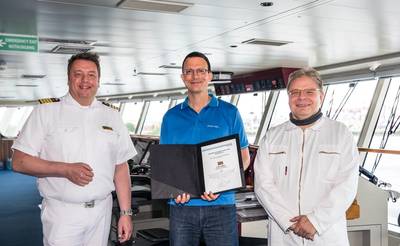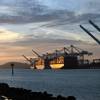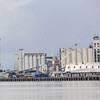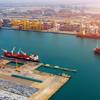Europa 2’s Cold Ironing Connection Certified by DNV GL
Ultra-luxury cruise ship Europa 2 has had its cold ironing connection certified by classification society DNV GL following testing of the undisrupted use and compatibility of the shore-to-ship power system in the Port of Hamburg.
While idled due to the coronavirus pandemic, Europa 2 has been using cold ironing at the Cruise Center Altona in Hamburg for the past 30 days, reportedly marking the first time a cruise ship has been using cold ironing for a long period of time.
Europa 2, with a maximum of 500 passengers requires 2.2 megawatts (MW) of power per hour during its lay time. The electricity used is being supplied by Hamburg Energie and comes from 100% renewable resources, which means that the operation of the Europa 2 in the port is practically climate-neutral. According to Hapag-Lloyd Cruises, emissions have been reduced to practically zero, and a total of 600 tons of carbon dioxide has been saved.
The compatibility of the cold ironing connection at the Cruise Center in Altona was adjusted by Hamburg Port Authority (HPA), as the small Europa 2 requires a lower voltage than the other cruise ships that are using cold ironing there. The settings can be easily duplicated any time the ship makes a stop at the port in future.
“We are glad that we have been able to make such valuable use of this forced break by driving forward cold ironing and the certification of the Europa 2. The fact that a cruise ship has used cold ironing over a long period of time in Hamburg is an important and unprecedented experience,” says Karl J. Pojer, CEO of Hapag-Lloyd Cruises. “Successful use of cold ironing is another important part of our environmental strategy. We use marine gas oil with a low 0.1% sulphur content in the whole fleet, all over the world, thereby going beyond the legal requirements.”
Hapag-Lloyd Cruises said all new ships in its fleet are equipped for cold ironing.
By using the low-pollutant fuel marine gas oil with a sulphur content of 0.1% (low-sulphur marine gas oil), the sulphur emissions of the Hapag-Lloyd Cruises fleet will be cut by 80%. The switch to marine gas oil also means a reduction in soot and particulates of up to 30%. Furthermore, all routes are carefully planned with an environmentally efficient average speed not pushing the vessels to go as fast as possible, reduces consumption by 30% and also lowers the emissions.













